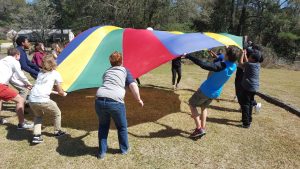The form ulation of an effective camp counselor training program is crucial for ensuring a positive and enriching experience for both campers and counselors alike. The primary objective of any summer camp should be to recruit, train, and support competent counselors who can contribute to the overall enjoyment and success of the camp. Counselors play a pivotal role in shaping the camp experience, and their training is essential in achieving this goal.
ulation of an effective camp counselor training program is crucial for ensuring a positive and enriching experience for both campers and counselors alike. The primary objective of any summer camp should be to recruit, train, and support competent counselors who can contribute to the overall enjoyment and success of the camp. Counselors play a pivotal role in shaping the camp experience, and their training is essential in achieving this goal.
When designing a counselor training program, it is imperative to cater to various learning styles and preferences among participants. This includes accommodating visual, auditory, and kinesthetic learners by incorporating a diverse range of methods and activities into the training sessions.
Five key components of a successful 4-H camp counselor training program:
- Community Service: Initiating activities that allow counselors to engage in community service not only fosters a sense of social responsibility but also serves as an effective icebreaker, facilitating bonding among participants. (examples: gleaning citrus trees, sorting at food banks, assisting with clothing drives, etc.)

- Ice Breakers: Commencing each training session with ice breakers and team-building activities helps to create a cohesive and supportive atmosphere among counselors, setting a positive tone for the camp.
- Multimedia Presentations: Utilizing multimedia presentations comprising visuals and quotes can effectively highlight important concepts and enhance the learning experience for counselors.
- Hands-On Activities: Incorporating hands-on activities into the training program ensures active engagement and caters to the diverse learning styles of participants.
- Social Time: Allowing for social interactions and downtime during the training schedule enables counselors to build relationships and establish a sense of camaraderie, which is essential for effective teamwork during the camp session.
Additionally, facilitating structured discussions and reflection sessions after completing activities enables counselors to share their experiences, analyze their learning, relate it to real-life situations, and apply newfound knowledge to future scenarios.
 Furthermore, individuals interested in assuming leadership roles at the camp should undergo a selection process involving applications and interviews to ensure suitability for the position. This ensures that counselors align with the principles of Positive Youth Development, which is integral to the camp’s mission.
Furthermore, individuals interested in assuming leadership roles at the camp should undergo a selection process involving applications and interviews to ensure suitability for the position. This ensures that counselors align with the principles of Positive Youth Development, which is integral to the camp’s mission.
Source: Kentucky 4-H Counselor Training Guide
- Key Elements of a Successful 4-H Camp Counselor Program - March 8, 2024
- Life Skills Aren’t Just Fair…..They Are Sooo Much More! - April 26, 2023
- Priority Life Skills in Florida 4-H - April 13, 2023
